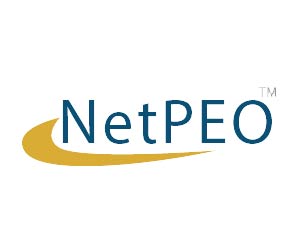As it is an HR outsourcing option, using a PEO means that there are some changes to the legal nature of a business’s employment structure. The co-employer relationship can be a great benefit for small businesses struggling to meet their HR challenges, but you may have concerns about the specific legal ramifications of the partnership. The federal government and all state governments have rules in place to recognize PEOs as employers.
If you’re considering partnering with a PEO, NetPEO is here to help you find the services you need at a price your business can afford. To get your free initial needs analysis, call us today at (678) 376-1212 or by completing the forms on the side of this website.
The Co-Employment Model
When you decide to work with a PEO for your HR outsourcing needs, you sign a client service agreement (CSA) which creates a co-employer status between your business and the PEO. The co-employer agreement gives the PEO rights to manage administrative functions related to HR matters.
For legal purposes, the PEO becomes the “employer of record” for your employees. Your employees are joined with the PEO, along with the employees of other businesses that have partnered with the organization, for tax, payroll, and other purposes. This also means the PEO can include payroll benefits as part of their offered services.
This doesn’t alter your functional relationship with your employees; you will still manage their activities at your worksite as you always have. PEOs do take on the liability for workers’ compensation, so they will work with you to ensure your employees continue to have a safe work environment and that all safety regulations are regularly followed. This offers peace of mind for the client company.
Federal Laws
PEOs are recognized as employers at the federal level. When it comes to paying for your employees’ taxes, the IRS puts liability for these payments with the entity responsible for releasing wages to the employee. If your partnership calls for the PEO to handle all aspects of your payroll, federal law requires that the filings are completed by the PEO under its employer identification number (EIN).
Certified Professional Employer Organizations (CPEOs)
In 2016, the federal government implemented a new certification program for PEOs to use. Known as Certified Professional Employer Organizations (CPEOs), these PEOs are certified by the federal government as having met strict federal guidelines. This program also clarifies a number of details regarding co-employment and federal tax law, such as:
The specific liability for tax remittance When a wage base start is or isn’t necessary, impacting how taxes may be implemented with a transition to new PEO Guidance on what federal tax credits may be claimed by the PEO and what may be claimed by its clients
The guidelines also require CPEOs to be bonded for up to $1,000,000 to ensure that your employees’ wages can be paid on time. Certified PEOs provide assurance that they meet federal standards, giving client companies a reliable option for HR outsourcing.
State Laws
While every state recognizes them as employers, there are no uniform laws for PEOs across all 50 states. Instead, each state has its own requirements for PEOs operating within it. Some states require licensing, others require a less stringent registration, and some don’t require any registration.
States that require PEO licensure to operate include:
Arkansas Florida Michigan Montana New Hampshire North Carolina North Dakota Oregon South Carolina Texas Vermont West Virginia
States that require PEO to register with the state government include:
Alabama Arizona Colorado Connecticut Hawaii Indiana Kansas Kentucky Louisiana Maine Massachusetts Minnesota Nebraska Nevada New Jersey New Mexico New York Ohio Oklahoma Rhode Island Tennessee Utah Virginia Wisconsin
The remaining states (Alaska, California, Delaware, Georgia, Idaho, Iowa, Maryland, Mississippi, Missouri, Pennsylvania South Dakota, and Wyoming) do not have licensure or registration requirements specifically for PEOs.
Getting a PEO That You Can Trust to Handle Regulations
While they are recognized as employers at the federal and state levels, PEOs face unique challenges depending on where they operate. PEOs need to be familiar with a multitude of regulations in order to operate safely. PEOs typically assist businesses with HR services, such as payroll, compliance, and benefits management, streamlining operations for client companies.
When looking to get a new PEO, it’s important that your new partner has experience operating with businesses like yours. You’ll want them to have experience working with companies in your state, as well as with businesses that work in your industry. These experiences will be a key measure to ensure that your company is in capable hands.
To make sure that your business is in the best hands, connect with the PEO brokers at NetPEO. With our decades of combined experience, our PEO brokers will work with your business to find a PEO with the experience necessary to handle the intricacies of your state and federal responsibilities. Professional employer organization PEO services are designed to give businesses peace of mind by managing human resource tasks efficiently. Whether you need HR services or support to include payroll in your operations, our brokers will help you find the right match. Call (678) 376-1212 to speak with us today!

